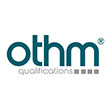- About
-
Courses
- Erasmus+ Programme
-
ACCA Courses
- All Courses
- ACCA Business and Technology (BT)
- ACCA Management Accounting (MA)
- ACCA Financial Accounting (FA)
- ACCA Corporate and Business Law (LW)
- ACCA -Taxation (TX)
- ACCA Financial Reporting (FR)
- ACCA Audit and Assurance (AA)
- ACCA -Financial Management (FM)
- ACCA P1 / P3 / SBL - Strategic Business Leader
- ACCA P2 / SBR- Strategic Business Reporting
- ACCA P4 / AFM - Advanced Financial Management
- ACCA Performance Management (PM)
- ACCA P7 / AAA - Advanced Audit and Assurance
- ACCA Diploma in Accounting and Business (This diploma is accredited as MQF level 5)
- MQF Level 5 / UK Level 5 Diploma in Business Management Ofqual no: 603/2176/3
-
Business Administration and Management
- All Courses
- Diploma in Business Management Ofqual no: '610/1527/1' comparable to MQF Level 5 / EQF Level 5 / UK Level 4 'Approved foreign higher education programme.'
- Diploma in Strategic Management and Leadership Ofqual no: 603/2181/7 comparable to MQF Level 7/EQF Level 7
- Bachelor of Business Administration (BBA)
- MQF Level 5/ EQF Level 5 / UK Level 4' Diploma in Project Management Ofqual no: '610/1781/4'.
- Business Finance and Accounting
- Computing, Information Technology
- Foundation Courses
- Health and Social Care
- Tourism & Hospitality
- Logistics and Supply Chain
- Masters Business Administration (MBA)
- Erasmus+ Programme
- Information
- Funding & Scholarships
- Student

![MQF Level 5 Programming Foundations [20 ECTS Credits]](/storage/app/media/Banners_IT_courses/MQF%20Level%205%20Programming%20Foundations.png)





